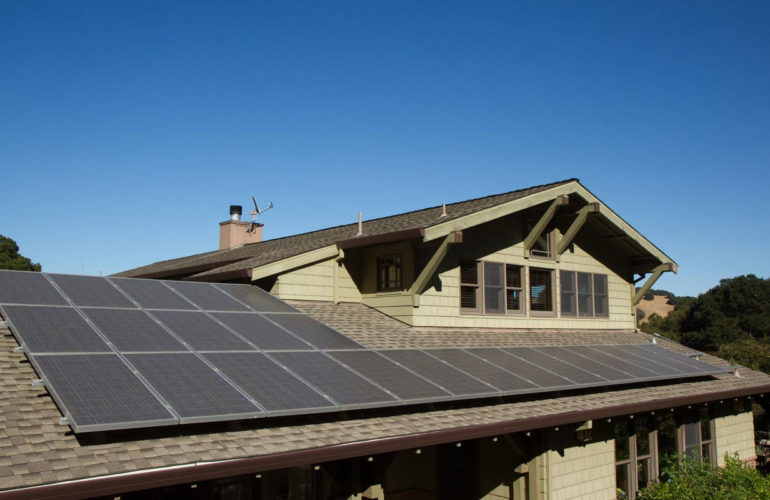In today's world, where energy efficiency and sustainable practices are becoming increasingly important, harnessing renewable energy sources is a key focus for many industries. One such remarkable innovation is solar cold storage. Solar cold storage refers to the use of solar energy to power refrigeration systems, allowing for the storage and preservation of perishable goods without relying on traditional power grids.
The Need for Off-Grid Cold Storage Solutions
The demand for off-grid cold storage solutions has been steadily increasing, especially in remote areas or regions with unreliable electricity supply. In such locations, traditional cold storage systems that depend on the power grid are often inefficient and costly to operate. Solar cold storage presents a viable solution to these challenges by utilizing the abundant power of the sun to provide a sustainable and independent cold storage infrastructure.
How Solar Cold Storage Works
Solar cold storage systems employ a combination of solar panels, batteries, and refrigeration units to create a self-sufficient and continuous source of cold storage. The process begins with solar panels capturing sunlight and converting it into electricity. This electricity is then stored in batteries, which act as a power reservoir for the refrigeration units. The refrigeration units, powered by the stored solar energy, cool and maintain the desired temperature inside the storage facility.
Advantages of Solar Cold Storage
Solar cold storage offers numerous advantages over traditional cold storage systems. Firstly, it provides an environmentally friendly alternative by reducing reliance on fossil fuels and minimizing greenhouse gas emissions. This contributes significantly to the global effort to combat climate change. Secondly, solar cold storage eliminates the need for costly infrastructure to connect to the power grid, making it a cost-effective solution, especially in remote areas
Case Studies of Successful Solar Cold Storage Installations
Several successful solar cold storage installations have demonstrated the effectiveness and reliability of this innovative technology. For example, in a remote village in Africa, a solar cold storage system was implemented to preserve locally harvested crops. This solution enabled the community to store their produce without relying on expensive diesel generators or traditional grid connections. Similarly, in a coastal region prone to frequent power outages, a solar cold storage facility was established to store fish and seafood.
Challenges and Limitations of Solar Cold Storage
While solar cold storage offers numerous benefits, it also faces certain challenges and limitations. One major challenge is the intermittent nature of solar energy. As sunlight availability varies throughout the day and is absent during nighttime, it is crucial to have sufficient battery storage capacity to ensure uninterrupted cold storage operations. Additionally, the initial investment cost of solar cold storage systems can be higher compared to traditional alternatives. However, it is important to consider the long-term savings and environmental benefits that outweigh the upfront costs.
The Role of Thermal Energy Storage Systems in Solar Cold Storage
To further enhance the efficiency and effectiveness of solar cold storage, thermal energy storage systems play a vital role. These systems store excess solar energy in the form of thermal energy, which can be used to maintain the desired temperature inside the storage facility during periods of low sunlight or high demand. The stored thermal energy acts as a backup source, ensuring continuous cooling without relying solely on battery power.
How Solar Cold Storage is Revolutionizing the Industry
Solar cold storage is revolutionizing the industry by providing a sustainable, cost-effective, and reliable solution for off-grid cold storage needs. Its ability to harness the power of the sun not only reduces reliance on traditional power grids but also contributes to a greener and more sustainable future. By minimizing food waste and ensuring the availability of perishable goods in remote areas, solar cold storage is transforming the way we store and distribute food.
Future Prospects and Trends in Solar Cold Storage
The future of solar cold storage looks promising, with ongoing advancements and emerging trends. One such trend is the integration of smart technologies and monitoring systems to optimize energy consumption and improve overall system performance. Real-time monitoring and data analysis enable operators to proactively identify and address any inefficiencies or potential issues, ensuring optimal operation and reduced energy waste. Additionally, advancements in battery technology and energy storage systems will enhance the reliability and storage capacity of solar cold storage installations.
Conclusion
Solar cold storage is a game-changer in the industry, providing a sustainable and off-grid solution for preserving perishable goods. By harnessing the power of the sun, solar cold storage systems offer numerous advantages, including environmental sustainability, cost-effectiveness, and scalability. Although there are challenges and limitations to overcome, ongoing research and development are paving the way for more efficient and reliable systems. With the integration of thermal energy storage and emerging trends in monitoring technologies, the future of solar cold storage is bright. As the industry continues to evolve, solar cold storage is set to revolutionize the way we store, distribute, and preserve perishable goods, shaping a greener and more sustainable future.


